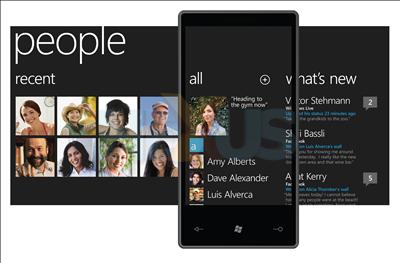Easy does it
Nokia's official blog recently ran a survey asking its readers what they want from a phone. It speaks volumes that the top three requests weren't so much new tools as improvements to the user experience.
Number one was the ability to recharge and interact with other devices wirelessly, second was longer battery life - something that is actively hindered as phones get more powerful and feature-rich. Third was the ability to interact with all other devices. Only then did respondents move onto things like biometric sensors, projection and video conferencing.
There is already a sense that hardware is progressing faster than software. Not so much that phones are offering more than we need them to, more that it's not easy or intuitive enough for us to find and use these features, and that the applications haven't been written that make many hardware features come to life.
We're getting there, though. Microsoft recently launched its first Android app - a clever use of the phones camera to enable instant communication of information to the handset via a simple, unique image that the phone can recognise when Tag Reader is installed.
In fact, having been forced to recognise its own failings in the mobile space, Microsoft is now getting all innovative. The launch of Windows Phone 7 showed Microsoft finally understands that the UI on a phone has to be completely different to a PC. We interact with a PC with, at least, ten fingers and a mouse; most people interact with their phones with one thumb. Additionally the screen real-estate is so much more limited on a hand-held device that not a pixel can be wasted.
If rumours are to be believed, Microsoft is also working on a dumbed-down smartphone - one that acknowledges that many people don't need a lot of these bells and whistles and certainly don't want to pay for them. An entry-level smartphone shouldn't simply be the de-featured runt of the litter; it should do fewer things, very well, for a lot less money.










